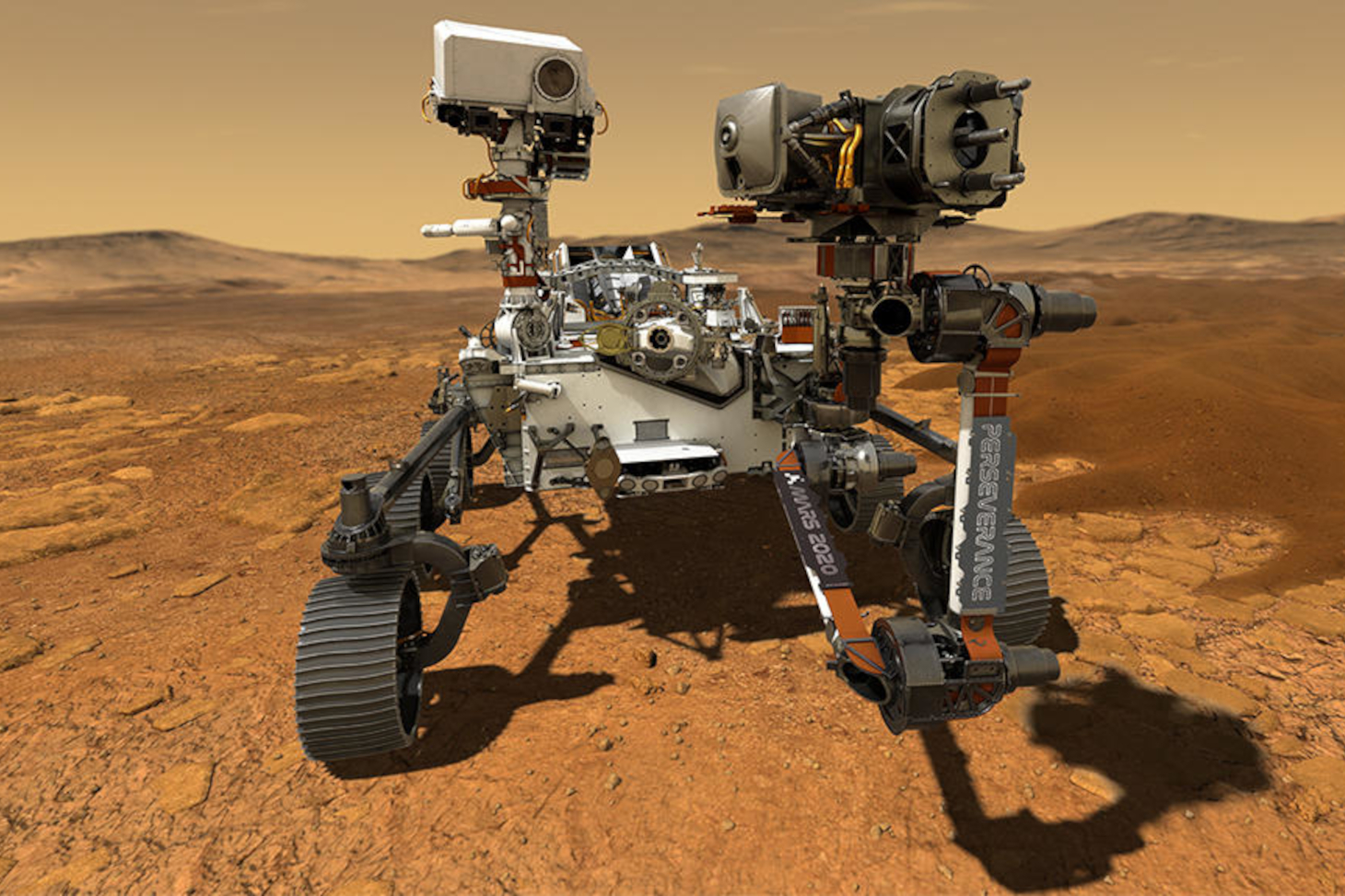Space: Grenoble scientists involved in the Mars 2020 mission
Research
On February 23, 2021

The Mars 2020 mission, which will search for traces of life on the Red Planet, reached its destination on February 18, 2021 with the landing of the Perseverance rover and the French instrument SuperCam onboard, a veritable Swiss army knife
for analyzing the Martian soil. An instrument carried at the national level by the CNRS and the CNES which involves scientists from Grenoble.
On Thursday, February 18, 2021, a little before 10 p.m., the Perseverance rover landed in the Jezero crater, an impact basin 45 kilometers in diameter that was filled with water 3.5 billion years ago. This site may have preserved fossil traces of life forms.
Perseverance, NASA's last mobile vehicle, will explore this ancient region of Mars to decipher its geological history, characterize its past habitability and search for traces of life. Beyond in situ exploration, the rover is designed to collect samples that will be recovered and brought back to Earth by two joint missions from the United States and Europe over the next ten years (MSR program, Mars Sample Return).
Perseverance's mission is also to prepare the human exploration of Mars. The Perseverance rover carries seven instruments, a sample collection and conditioning system and the small Ingenuity "helicopter" drone.
France is co-responsible for the SuperCam instrument, a much improved version of the ChemCam instrument that has been operating on board the Curiosity rover on Mars since August 2012. SuperCam is a bit of a "Swiss Army knife" for the mission's scientists. It uses five different analysis techniques: one atomic composition measurement, two molecular measurements (how atoms are bound together and how molecules are arranged together), an imaging device to take pictures of the targets that are being analyzed, and finally the very first scientific microphone to reach the surface of Mars. Thus equipped, SuperCam will remotely study the chemistry and mineralogy of Mars or the composition of its atmosphere.
ChemCam and SuperCam are also two instruments well known to the Institutee for Planetary sciences and Astrophysics, Grenoble (IPAG) and Institute of Earth Sciences (ISterre), two laboratories of OSUG, a Grenoble research structure engaged in scientific studies related to all aspects of the Universe, the Earth and environmental systems. the IPAG and ISterre worked in particular on the choice of calibration targets: both on the question of the homogeneity of the target pellets by chemical mapping and on the infrared channel of SuperCam and the determination of their spectral and photometric properties. They have also developed over the last few years infrared measurement systems, in simulated Martian conditions (low pressure, low temperature), which will be used to support future measurements of the SuperCam instrument.
We will then be able to build progressively an understanding of the landing zone, and later of the zones visited, to define a model of the Martian geological and environmental conditions. We will also be able to define a history, recent and in the geological past, of this site, this region, the Planet. Finally, our grail: to make progress on the question of a possible appearance of life on Mars in its primordial times.
But this Mars 2020 mission with the Perseverance rover is only the first of the much more ambitious program to bring back to Earth the samples that will be cored, and to study them, by 2030. I doubt that history will end in 2040, but then we will surely start to see things more clearly!"
Perseverance, NASA's last mobile vehicle, will explore this ancient region of Mars to decipher its geological history, characterize its past habitability and search for traces of life. Beyond in situ exploration, the rover is designed to collect samples that will be recovered and brought back to Earth by two joint missions from the United States and Europe over the next ten years (MSR program, Mars Sample Return).
Perseverance's mission is also to prepare the human exploration of Mars. The Perseverance rover carries seven instruments, a sample collection and conditioning system and the small Ingenuity "helicopter" drone.
France is co-responsible for the SuperCam instrument, a much improved version of the ChemCam instrument that has been operating on board the Curiosity rover on Mars since August 2012. SuperCam is a bit of a "Swiss Army knife" for the mission's scientists. It uses five different analysis techniques: one atomic composition measurement, two molecular measurements (how atoms are bound together and how molecules are arranged together), an imaging device to take pictures of the targets that are being analyzed, and finally the very first scientific microphone to reach the surface of Mars. Thus equipped, SuperCam will remotely study the chemistry and mineralogy of Mars or the composition of its atmosphere.
ChemCam and SuperCam are also two instruments well known to the Institutee for Planetary sciences and Astrophysics, Grenoble (IPAG) and Institute of Earth Sciences (ISterre), two laboratories of OSUG, a Grenoble research structure engaged in scientific studies related to all aspects of the Universe, the Earth and environmental systems. the IPAG and ISterre worked in particular on the choice of calibration targets: both on the question of the homogeneity of the target pellets by chemical mapping and on the infrared channel of SuperCam and the determination of their spectral and photometric properties. They have also developed over the last few years infrared measurement systems, in simulated Martian conditions (low pressure, low temperature), which will be used to support future measurements of the SuperCam instrument.
Reaction of Eric Lewin, professor-researcher at the University Grenoble Alpes involved in the Mars 2020 mission within the IPAG following the successful landing of Perseverance:
"I will say that the real work can finally begin! After the preparatory stage, the 'field' campaigns of geologists, botanists, naturalists, ethnologists, sociologists, etc have two aspects to manage: the first is the operation of the rover, feeding this robot with work, measurements or samples to be carried out, and this on a daily basis (in synchronous Martian time during the next 3 months). The second is the work of a scientist: studying the acquired data, validating them by complementary measurements and experiments in our labs, etc.We will then be able to build progressively an understanding of the landing zone, and later of the zones visited, to define a model of the Martian geological and environmental conditions. We will also be able to define a history, recent and in the geological past, of this site, this region, the Planet. Finally, our grail: to make progress on the question of a possible appearance of life on Mars in its primordial times.
But this Mars 2020 mission with the Perseverance rover is only the first of the much more ambitious program to bring back to Earth the samples that will be cored, and to study them, by 2030. I doubt that history will end in 2040, but then we will surely start to see things more clearly!"
Published on March 2, 2021
Updated on March 2, 2021
Updated on March 2, 2021

